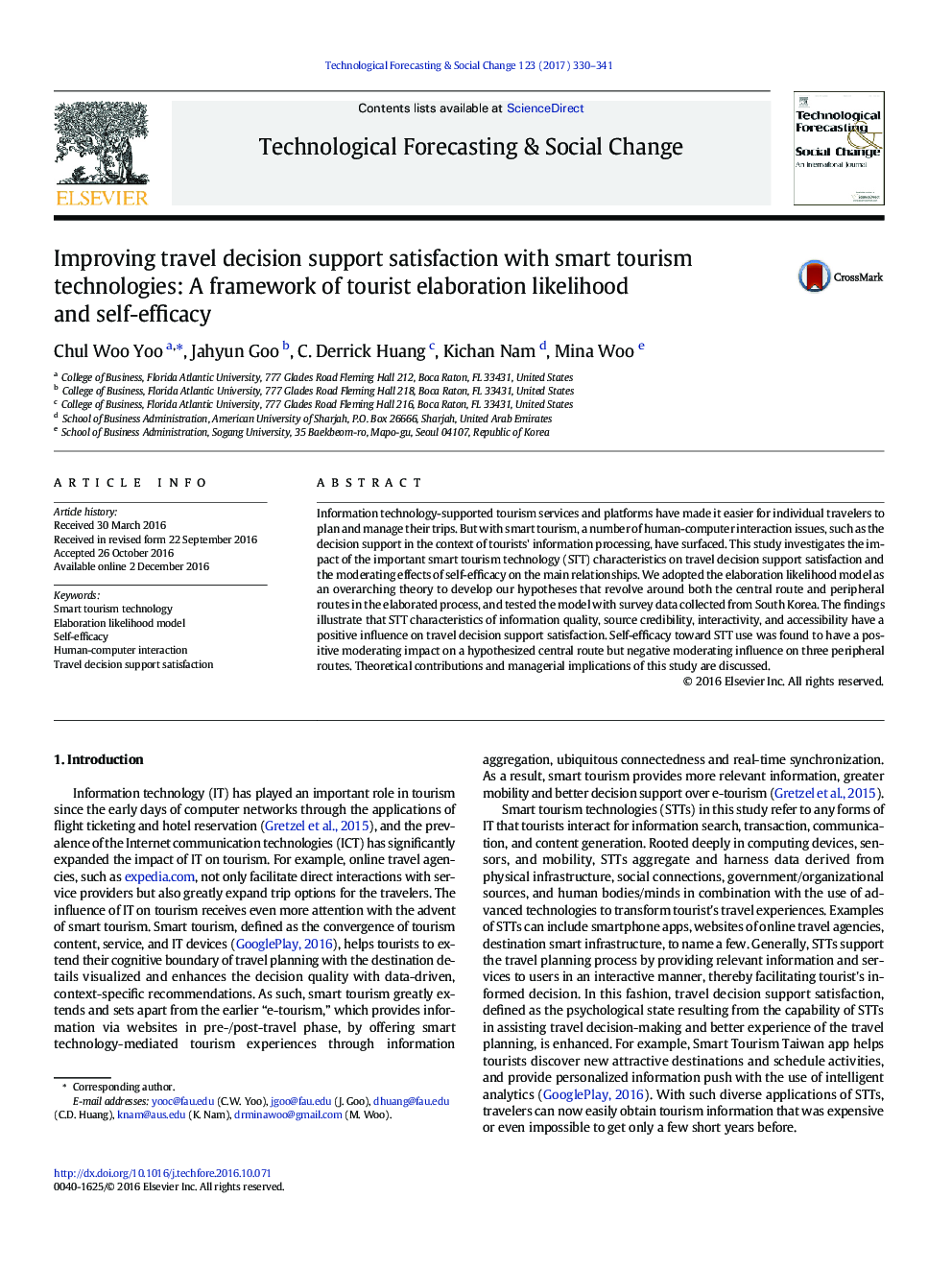| Article ID | Journal | Published Year | Pages | File Type |
|---|---|---|---|---|
| 5036826 | Technological Forecasting and Social Change | 2017 | 12 Pages |
Abstract
Information technology-supported tourism services and platforms have made it easier for individual travelers to plan and manage their trips. But with smart tourism, a number of human-computer interaction issues, such as the decision support in the context of tourists' information processing, have surfaced. This study investigates the impact of the important smart tourism technology (STT) characteristics on travel decision support satisfaction and the moderating effects of self-efficacy on the main relationships. We adopted the elaboration likelihood model as an overarching theory to develop our hypotheses that revolve around both the central route and peripheral routes in the elaborated process, and tested the model with survey data collected from South Korea. The findings illustrate that STT characteristics of information quality, source credibility, interactivity, and accessibility have a positive influence on travel decision support satisfaction. Self-efficacy toward STT use was found to have a positive moderating impact on a hypothesized central route but negative moderating influence on three peripheral routes. Theoretical contributions and managerial implications of this study are discussed.
Related Topics
Social Sciences and Humanities
Business, Management and Accounting
Business and International Management
Authors
Chul Woo Yoo, Jahyun Goo, C. Derrick Huang, Kichan Nam, Mina Woo,
